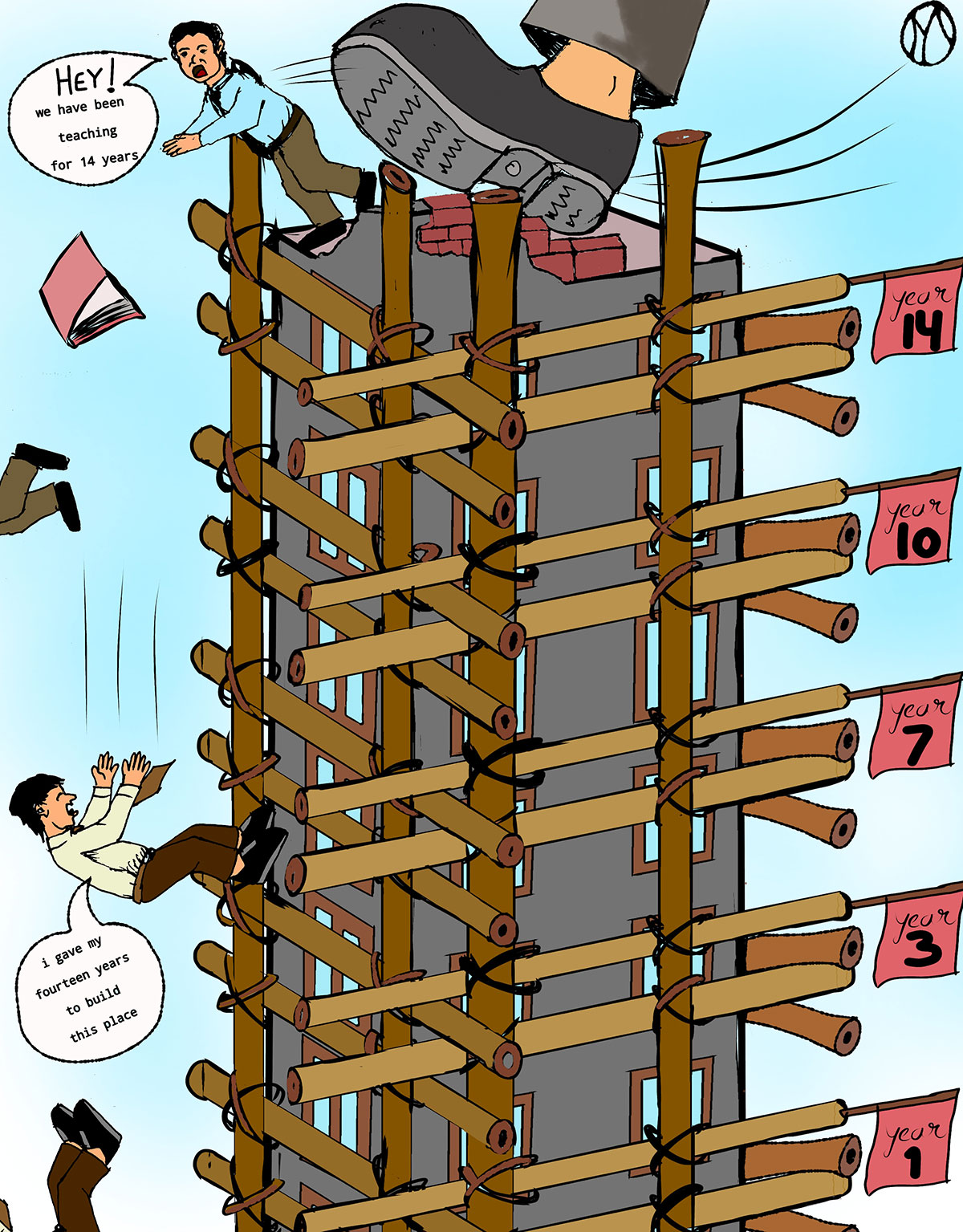by Dr Rafi Ramzan Dar
It appears that the system is focused solely on preserving state funds, at the expense of destroying the peace and potential of its intellectual class—a group capable of significant contributions but discouraged by the neglectful actions of a select few in positions of power.
Throughout human history, societies and nations have relentlessly pursued not only individual advancement but also collective progress. Across physical, cultural, ideological, behavioural, intellectual, moral, ethical, political, and socio-economic realms, Homo sapiens have consistently aimed for the highest standards in a comprehensive manner.
We have witnessed transformations: from slaves to masters, landless serfs to landlords, low-income groups to higher earners, and small villages evolving into model communities, eventually developing into sprawling urban centres. Vacant spaces have morphed into bustling department stores, warehouses, and malls. Students have transitioned into esteemed scholars and educators, while trainees have ascended to leadership roles in companies. Monarchies have transitioned into democratic systems.

The underlying impetus behind these myriad struggles, unmentioned here, is passion—fuelled by a steadfast commitment to hard work. The fundamental truth is our aversion to stagnation; rather, we aspire to grow, evolve, and thrive. At each juncture, we strive for better positions and opportunities to lead dignified lives. Essentially, we embrace and labour towards positive change. Those who veer from this ethos fail to grasp the essence of a meaningful existence.
In our region, the ideal of equitable treatment falters significantly within the realm of higher education. Here, rather than unqualified individuals, it is highly educated scholars and intellectuals who find themselves subject to the whims of those in positions of authority. The Department of Higher Education in Jammu and Kashmir has a history of marginalizing highly qualified youth through its flawed and biased system. While I refrain from assigning blame, it is imperative to address the situation candidly.
Bureaucratic indifference has rendered this system both ineffectual and indifferent, with every responsible officer seemingly dedicated to suppressing the intellectual class employed on a daily wage basis across Jammu and Kashmir’s many colleges. Each change or transfer of office is met with accusations of system failure, resulting in a myopic approach that neglects the basic needs of contractual faculty. Despite holding top academic credentials, these temporary teachers are treated unfairly, compelled to work alongside permanent staff yet receiving significantly lower wages, often not even a quarter of their counterparts’ pay. This flagrant disregard not only unjustly treats contractual teachers but also blatantly violates the principle of “equal work, equal pay.”
This system is unique in its paradoxical treatment, where highly qualified graduates from prestigious institutions such as IITs, IIMs, and top research centres receive inferior wages compared to what they earned through their JRF or SRF fellowships before entering contractual employment. Despite being the linchpin of the academic structure, demands for equitable compensation are met with indifference from those in authority, despite their awareness of the pivotal role played by contractual staff.
Before 2018, these individuals, who were the primary breadwinners for thousands of families, were known as college contractual lecturers, receiving a meagre monthly salary of Rs 8000. Their pay was further reduced during winter and summer breaks. Post-2018, their title shifted to Academic Arrangement lecturers, eventually downgrading to “Need-based Academic Arrangement lecturers,” despite dedicating prime years of their lives to the system. This classification renders their teaching experience unrecognised beyond the Jammu and Kashmir, where contractual lecturers are paid according to well-defined UGC norms throughout the year.

In recent times, the system has added insult to injury by requiring yearly CID and police verifications, as if they were seeking permanent employment annually. Despite possessing significant potential and intellect to contribute meaningfully in various capacities, these individuals have been subjected to a degrading cycle of uncertainty and instability.
The degradation of their status by higher authorities is matched by reductions in their wages, now diminished to rates as low as Rs 400 per lecture per day, resulting in monthly earnings of Rs 10,000 to Rs 12,000. Does such a harsh decline align with the values of a progressive society? Are these highly qualified individuals, who are being exploited, not part of our community? Do they not have families to support? Is our system not undermining their intellect and value? Is this the reward for their years of dedication to prestigious institutes, aimed at serving their land? Is this the essence of a welfare state in our region?
It appears that the system is focused solely on preserving state funds, at the expense of destroying the peace and potential of its intellectual class—a group capable of significant contributions but discouraged by the neglectful actions of a select few in positions of power.

Day by day, the frustrations of these underemployed youth mount, exacerbated by the persistent issue of insufficient and unjust wages. The relevant authorities must awaken to this reality before discontent escalates into revolution, risking the collapse of the entire educational system, as recently witnessed in Karnataka and other states.
Let us embrace collective progress and forward-thinking. Together, let us strive for the improvement of all and set a precedent of inclusive development within our educational system. It is essential to address grievances promptly before they escalate further.
(The author teaches geography. Ideas are personal.)














